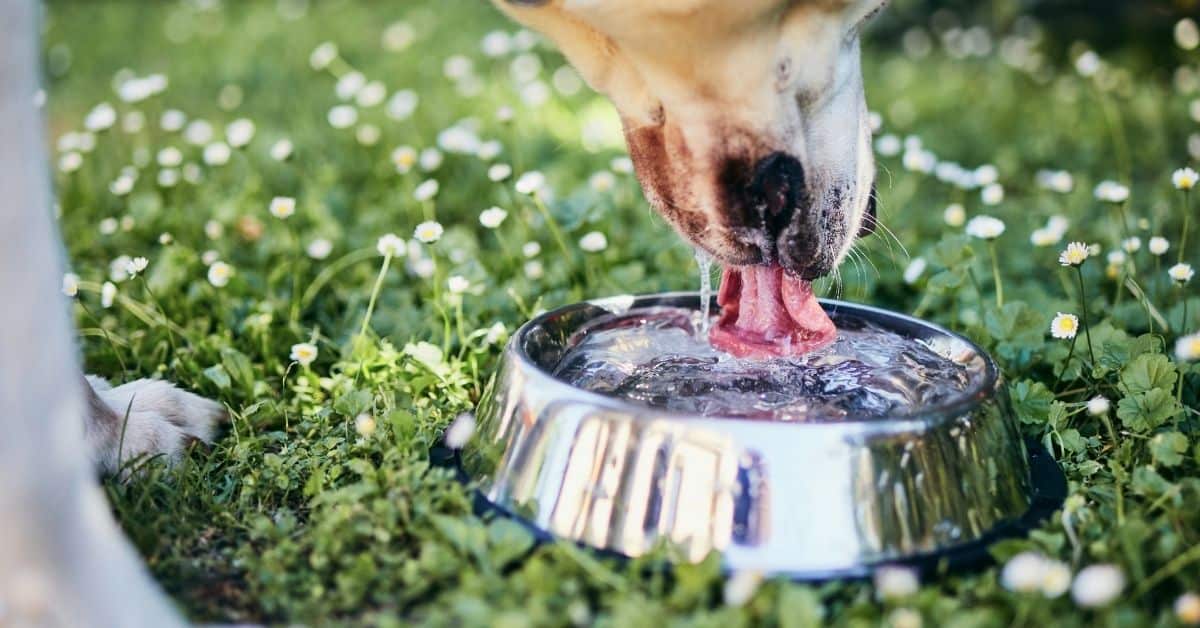Dogs are like humans because they need to drink plenty of fluids daily to stay healthy.
Like us, they can get dehydrated quickly if they don’t have access to water.
But what can dogs drink besides water?
There are many options for dogs regarding beverages, and we will explore some of them in this article.
Stay tuned as we discuss everything from unsalted beef or chicken broth to milk and coconut water!
What Can Dogs Drink Besides Water? – 8 Things To Know
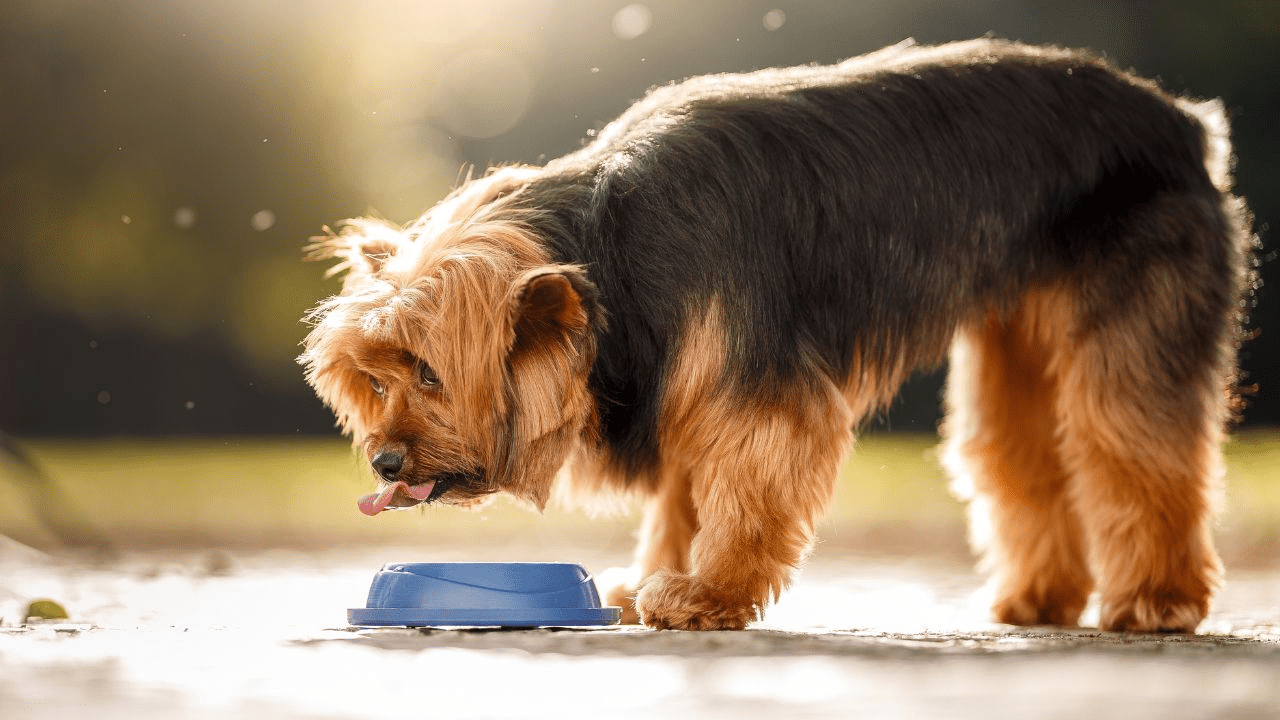
Like us, dogs can get dehydrated quickly if they don’t have access to water.
But that doesn’t mean they only have to drink water!
Unsalted Beef or Chicken Bone Broth
Unsalted beef or chicken bone broth is an excellent alternative for dogs, and they can easily digest it.
Plus, the added nutrients are suitable for their health.
Pedialyte
If your dog has been sick or has had diarrhea, you may have heard of Pedialyte as a remedy.
It helps replace lost fluids and minerals and is available in most stores.
This electrolyte drink is also great for healthy dogs who want something extra in their diet.
Kefir
Kefir is a type of fermented milk that is packed with probiotics- perfect for keeping your dog’s digestive system in check!
It’s also delicious, so your pup will love it.
Just get a low-sugar version and not give too much at once.
Pure Fruit Juices
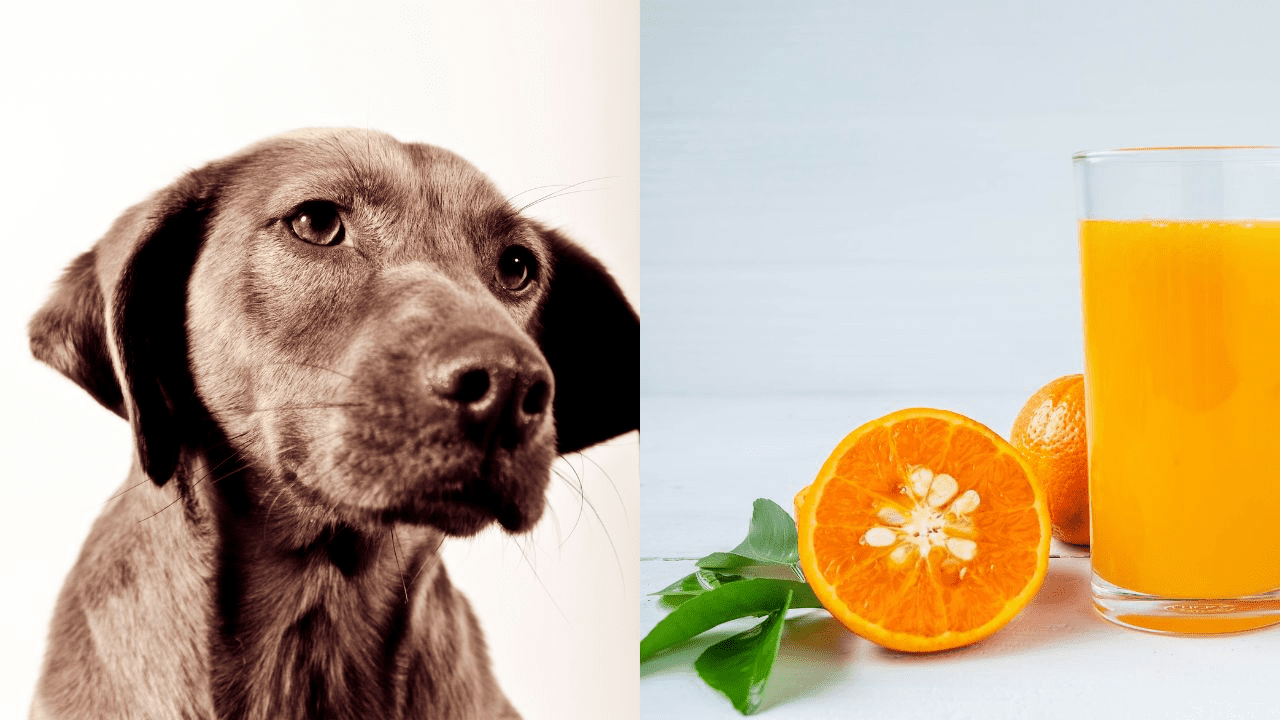
While you should avoid giving sugary dog drinks like soda, pure fruit juice, and fresh juice can be great for dogs in moderation.
Ensure the juice is unsweetened and has no added sugar, as this can cause health problems in dogs.
You can give your dog some unsugared orange juice, carrot juice or other fruit juice.
But keep paying attention: most juices are full of sugar, don’t take those.
Milk
Dogs can also enjoy milk in moderation- ensure it’s always pasteurized and not raw.
If your pup has a lactose intolerance or sensitivity, you may want to opt for an alternative such as nut milk or coconut water instead.
Nut Milk
Nut milk is an excellent alternative for dogs with lactose intolerance and is also packed with healthy vitamins and minerals.
Almond, cashew, and coconut milk are safe for dogs to drink in moderation.
Vegetable Juice
If your pup needs extra nutrients, vegetable juice can be a great source of vitamins and minerals.
Make sure the juice is unsweetened and has no added sugar- just like you’d do for any other type of juice.
Coconut Water
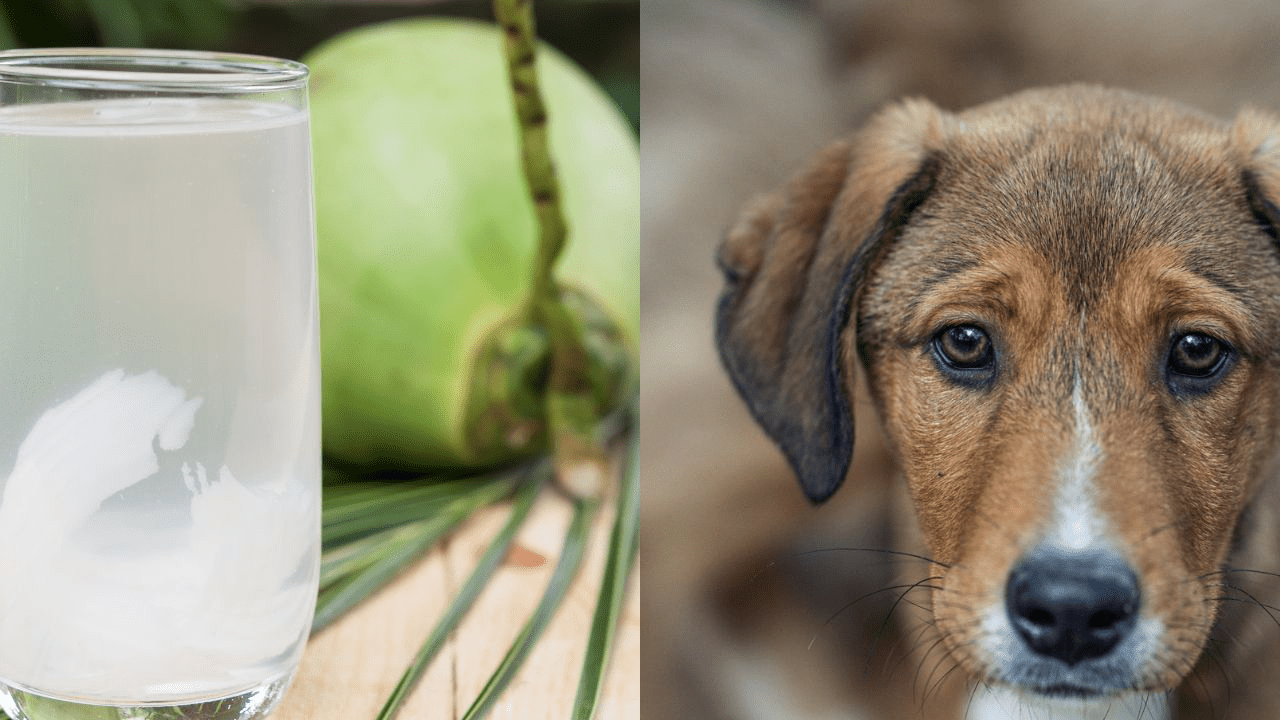
Like humans, dogs can benefit from drinking coconut water.
It’s hydrating, full of electrolytes, and helps keep them cool on hot days!
Plus, it’s tasty too!
Just be sure to give it in moderation and never as a replacement for water.
So there you have it- some of the best drinks dogs can enjoy besides water!
All these are safe and healthy options but always check with your vet before giving your pup any new foods or beverages.
As long as you do that, your puppy should be able to enjoy all these delicious drinks in no time! Happy drinking!
Things Dogs Should Never Drink
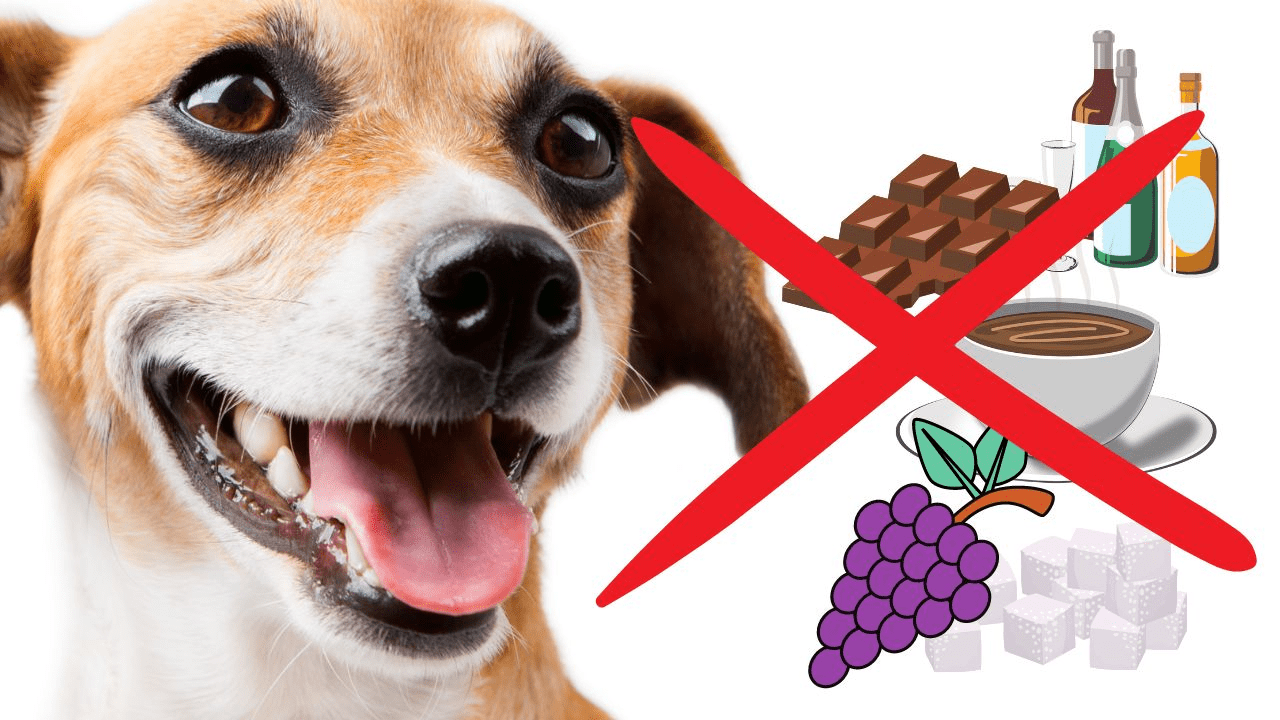
Alcohol
Dogs should never be given alcohol, as it can cause serious health issues such as vomiting, diarrhea, central nervous system depression, difficulty breathing, coma, and even death.
It is important to remember that dogs do not process alcohol as humans do, so even small amounts of alcohol can be toxic.
Caffeine
Coffee and tea contain caffeine, a stimulant that can cause tremors, rapid heart rate, and other dangerous symptoms in dogs if ingested in large enough doses.
Caffeinated drinks are also acidic, which can cause gastrointestinal issues like upset stomach and vomiting.
Chocolate
Chocolate contains theobromine which is toxic to dogs because they cannot break it down.
Eating and drinking chocolate can lead to vomiting, diarrhea, seizures, and even death in some cases.
Darker chocolates have higher levels of theobromine and should be avoided altogether in a dog’s diet.
Grape Juice & Wine
Grapes and raisins are toxic to dogs, so it’s essential to avoid giving them any foods that contain these fruits, including juices or wines made with grapes.
Consuming either of these drinks can cause serious health problems such as kidney failure, seizures, and even death in some cases.
Things With Added Salt, Sugar, Or Artificial Sweeteners
Any beverage you give your dog shouldn’t have any extra salt or sugar.
These substances can cause your pet to gain too much weight and are just bad for them.
For dogs, artificial sweeteners, especially xylitol, can be highly toxic and cause loss of coordination, coma, seizures, and even death.
Contaminated Water
Dogs should always have access to clean, fresh water but not just any kind of water.
Tap water can contain bacteria or toxins that could harm pets, so it’s best to use filtered or distilled water when possible.
Additionally, dogs should never drink from standing pools of water as this could potentially contain parasites that can make them very ill.
In conclusion, while there are many things dogs can safely drink besides water, there are also a few beverages and foods they should avoid.
By avoiding alcohol, caffeine, chocolate, grape juice, wine, and items with added sweeteners, salt, and contaminated water, pet owners can help ensure their canine companions stay healthy and happy.
Are Dogs Bored By Water?

Dogs are unlikely to become “bored” with water, even if they drink it daily.
Even though it’s impossible to be specific, most animals, including wild dogs, depend solely on the water while not in the nursing stage.
Any additional liquid will serve as a supplement to regular water consumption for dogs rather than replacing it.
Why Should We Give Our Dogs Something Else Then Water?

Why may you think about providing your dog with some creative hydration options?
Here are a few situations where you might wish to provide your pet with an alternative to water.
A pleasant dessert can be made from other liquids. Other liquids, like unsalted broth, are delectable to many puppies, making them fun to spoil your beloved dog. Liquid treats can also be frozen for a refreshing treat for your dog.
They might encourage those who don’t drink much to drink more. A small amount of liquid added to their water bowl may tempt puppies who don’t seem to drink as much water as they should.
Certain liquids may provide nutritional advantages. A few of these drinks offer vitamins and minerals that are good for dogs, which can assist your best friend’s diet. Some go so far as to include extra protein, fat, and calories.
Certain liquids might aid dogs in their healing. Certain beverages can assist your dog in regaining his natural state by rehydrating a dehydrated dog or relieving gastrointestinal distress.
They might add some flavor to your dog’s regular bowl of food. If your dog finds his dry food boring, you can make his everyday meal into a canine treat by adding a little liquid.
Conclusion: What Can Dogs Drink Besides Water?
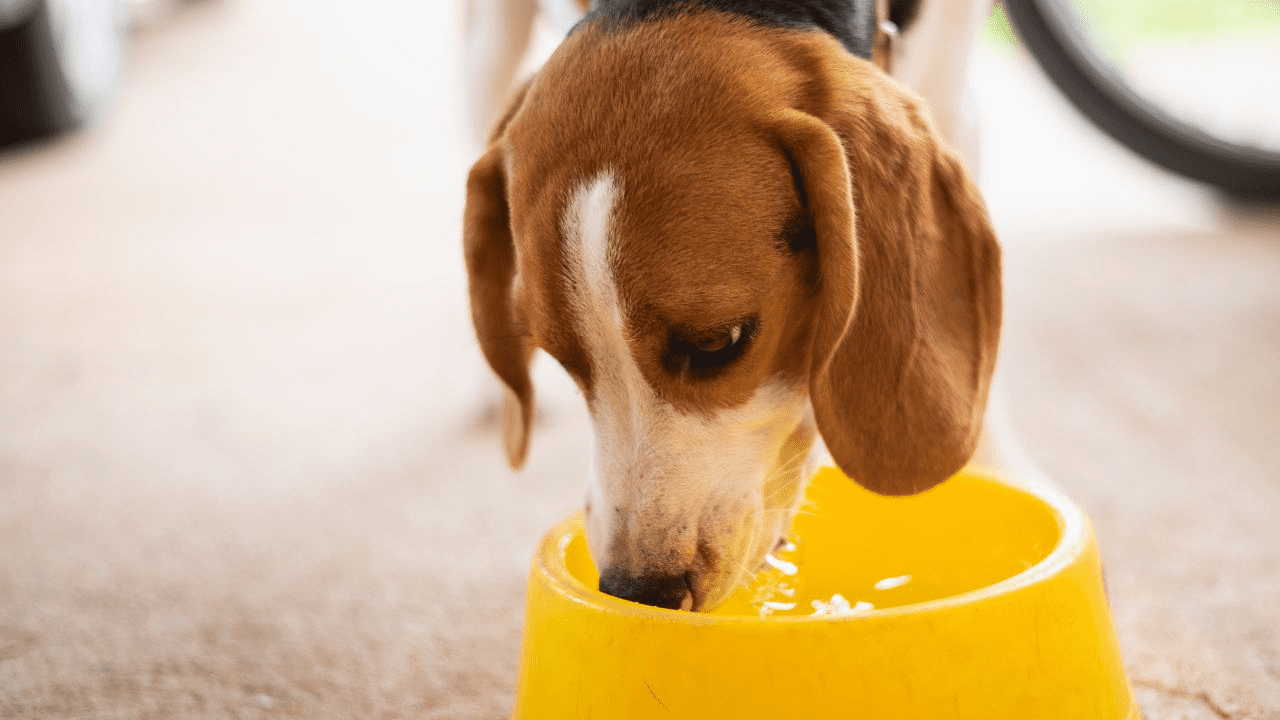
The question “What can dogs drink besides water” should be answered now.
If you’re looking for a way to spice things up for your dog, the drink alternatives above will give them something to be excited about the next time they develop a powerful thirst.
They offer a fantastic way to keep your dog hydrated without boring them when given in moderation.
However, as long as you keep your dog’s water bowl full, they should be alright.
They don’t get bored as quickly as we do, which is good until you’re playing fetch in the backyard for the third hour straight.
Before You Go…
Now you know the answer to the question, “What can dogs drink besides water?”
If you want to learn more, read the following articles too!

